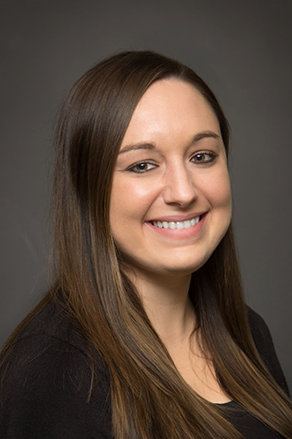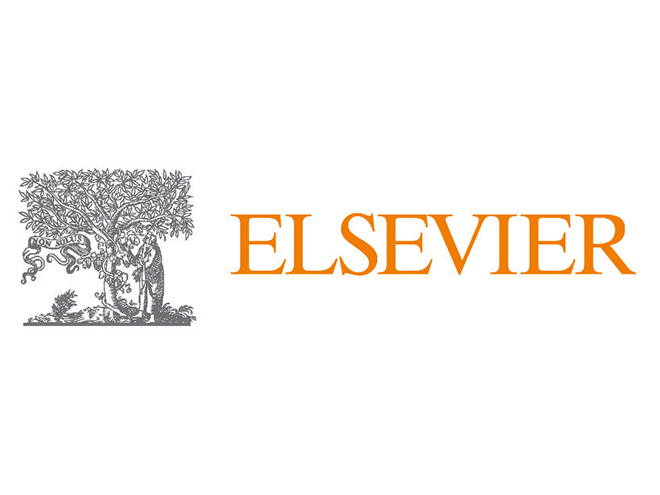SCO Private Practice Residency
Those who complete their 1-year private practice residency at Wow Vision Therapy will experience personal satisfaction and professional confidence gained through advanced skills in one of optometry’s greatest specialties – developmental vision, vision therapy (VT), and neuro-optometric vision rehabilitation. Our residents will learn the best practices in providing vision therapy, staff training, and practice management tools for building a successful VT practice.
Wow Vision Therapy currently has two clinical locations. The first is located in St. Joseph, Michigan, which is nestled on the shores of beautiful Lake Michigan. Our second office is located in Grand Rapids, MI, which is the second-largest city in Michigan.
PROGRAM MISSION
The resident will experience a unique opportunity to develop proficiency in developmental vision, binocular vision, rehabilitative vision therapy, and pediatrics. Merging principles in cognitive visual neuroscience with human factors in private practice, the post-graduate clinician will acquire the skills needed to excel in education, research, and patient care.
Under the direction of Dr. Dan Fortenbacher, our residents will immerse themselves in a practice that is dedicated to the diagnosis and treatment of patients with problems associated with binocular vision, accommodation, oculomotor function, visual information processing, visual-sensory, and motor integration.

Dan L. Fortenbacher, O.D., FCOVD
Founder, Residency Supervisor – St. Joseph Office
Dr. Fortenbacher received his Doctor of Optometry from the Michigan College of Optometry at Ferris State University in 1979. His interest in developmental vision and rehabilitative vision therapy began early in his career, working with helping children who struggled with binocular vision problems and vision-related learning problems. He is a Board Certified Fellow of the College of Optometrists in Vision Development (COVD) and lectures extensively on developmental vision, neuro-optometry, and vision therapy. Dr. Fortenbacher is a past examiner for the International Examination and Certification Board of COVD from 1999 to 2004. He has served in several leadership positions on the state and national levels. He served as president of the international COVD in 2007-08. In 2020 Dr. Fortenbacher received the G.N. Getman Award, Developmental Optometry’s highest lifetime achievement award for clinical excellence. Dr. Fortenbacher has developed innovative models for delivering developmental, binocular, and neuro-optometric vision rehabilitative care.
In addition to his private practice, Dr. Fortenbacher is also a clinical professor at the Michigan College of Optometry at Ferris State University and an adjunct faculty position at the Southern College of Optometry, where he is the program supervisor for the Wow Vision Therapy and Rehabilitation Private Practice Residency.

Alyssa Parz, O.D., FCOVD
Partner, Residency Supervisor – Grand Rapids Office
Dr. Parz is Board Certified in Vision Therapy and Rehabilitation and treats patients in the greater Grand Rapids area to unlock their fullest potential through developmental vision and vision rehabilitation.
As a Chicago, Illinois native, Dr. Parz received her bachelor of science degree in psychology from the University of Illinois Urbana-Champaign. Thereafter, she obtained her doctorate degree, summa cum laude (with the highest distinction), from the Illinois College of Optometry. Furthermore, she participated in optometric honor societies such as the Tomb and Key and Beta Sigma Kappa society. During her residency, she completed pediatrics and vision rehabilitation training at the Draisin Vision Group in Charleston, SC. She is a Fellow of the College of Vision Development (COVD) and the Neuro-Optometric Rehabilitation Association. Dr. Alyssa enjoys helping both children and adults achieve optimal binocular vision!
HEALTH INSURANCE
The resident will have the opportunity to purchase health insurance through Wow Vision Therapy, LLC.
MOONLIGHTING POLICY
Moonlighting is defined as employment outside of the residency during the term of the residency. Moonlighting is permitted while enrolled as a resident in this program ONLY with prior approval of the program supervisor. Moonlighting is not permitted to interfere with or be substituted for any assigned residency activity.
ACCREDITATION
The residency program at Wow Vision Therapy, LLC is fully accredited by the ACOE, 243 N. Lindbergh Blvd., St. Louis, MO 63141, 314-991-4100.
CERTIFICATE OF COMPLETION
Upon satisfying all the requirements for completion of the program as determined by the Supervisor of the Residency Program and the Director of the Residency Programs, a Certificate of Completion will be awarded to the resident by Southern College of Optometry.
REPORTING STATUS
The resident reports to the Supervisor of the residency program. The Supervisor reports directly to the SCO Director of Residency Programs, who in turn reports directly to the Vice President for Academic Affairs at Southern College of Optometry.
STIPEND
A residency stipend will be provided for the year of training paid by the clinic. The stipend is currently $42,000. Compensation is not contingent upon the productivity of the resident. Additional benefits such as FICA and professional liability insurance are also funded by the clinic.
PROGRAM GOALS
The resident will experience a unique opportunity to develop proficiency in developmental vision, binocular vision, and rehabilitative vision therapy, and pediatrics. Merging principles in cognitive visual neuroscience with human factors in private practice, the post-graduate clinician will acquire the skills needed to excel in education, research, and patient care.
Goal 1: Enhance the resident’s clinical skills in developmental and functional vision disorders and pediatrics
Objective: The resident will develop proficiency in delivering eye and vision care, principally directed toward vision therapy and vision rehabilitation, and pediatrics.
Outcome: The resident will provide eye and vision care services involving a minimum of 1000 patient encounters, demonstrating proficiency in reviewing intake information, obtaining a case history, and performing comprehensive eye health and visual evaluation.
These encounters will include but not be limited to: visual efficiency, visual processing, visual integration, strabismus, developmental disorders of spatial vision, attention deficit, autistic spectrum, and acquired brain injury disorders.
Measure: The resident will report the number of patient encounters of this type using an activity log.
Goal 2: Develop the resident’s expertise in the differential diagnosis and management of functional visual system disturbances.
Objective 1: The resident will anticipate the appropriate diagnostic procedures based on the patient’s total case history.
Outcome: The resident will consistently select and successfully perform high-yield procedures for each patient, including differentiating disease conditions masquerading as binocular disorders and the inverse.
Measure: The supervisor will evaluate the resident quarterly to determine test selection and application progress.
Objective 2: The resident will rank order diagnoses optimally suited to each patient.
Outcome: The resident will consistently select the most appropriate diagnosis or diagnoses for each patient, with increasing independence as the residency program progresses.
Measure: The resident will be evaluated quarterly by the supervisor to assess the resident’s diagnostic acumen.
Objective 3: The resident will determine the best management based on the diagnoses.
Outcome: The resident will consistently devise an appropriate management plan for each patient to best address the patient’s needs.
Measure: The resident will be evaluated quarterly by the supervisor to assess the resident’s management skills.
Goal 3: Advance the resident’s skills in technology-based tests utilized for special procedures.
Objective 1: The resident will develop proficiency in administering and interpretingVisagraph for eye movements involved in reading
Outcome: The resident will conduct and evaluate the results of these procedures for at least 100 patient encounters.
Measure: The resident will report on the number of patient encounters of this type using an activity log.
Objective 2: The resident will develop expertise in using advanced ophthalmic diagnostic instrumentation to investigate disease and establish the functional nature of strabismus and amblyopia.
Outcome: The resident will perform and/or interpret tests with advanced ophthalmic diagnostic instruments, including threshold visual fields and retinal photography for at least 50 patients.
Measure: The resident will report on the number of patient encounters of this type using the activity log.
Goal 4: Expand the resident’s skills in vision therapy procedures.
Objective 1: The resident will develop proficiency in administering vision therapy procedures according to textbook guidelines, as well as adapt, customize and innovate as required for optimal patient care.
Outcome: The resident will administer at least three procedures on each vision therapy patient encounter for a minimum of 100 patient encounters, reflecting a balance between computerized and non-computerized procedures.
Measure: The resident will report on the number of patient encounters of this type using an activity log.
Goal 5: Develop the resident’s skills in presenting topics to fellow professionals.
Objective: The resident will acquire the skills needed to present information publically in a group setting.
Outcome: The resident will present lectures during meetings, including weekly on-site case conferences and at least one presentation to a group off-site.
Measure: The resident will report monthly on these types of activities using an activity log.
Goal 6: The Resident will engage in scholarly activities reflective of post-graduate study.
Objective: The resident will assist in preparing a professional manuscript based on patient care encounters on site.
Outcome: The resident will prepare a manuscript (paper) of publishable quality. This may be submitted for publication. They will also be able to present a poster at the annual meeting of COVD, AOA, Academy, or NORA.
Measure: The resident will complete the manuscript by the designated completion date of the Residency program.
CURRICULUM
The educational objectives of the curriculum are designed to facilitate the mission, stated goals, and objectives of the program as follows:
Program Goal 1
Objective: The resident will develop proficiency in the delivery of eye and vision care, principally directed toward vision therapy and vision rehabilitation
Learning Activity: The resident will provide eye and vision care services involving a minimum of 1000 patient encounters, demonstrating advanced skills in reviewing intake information, obtaining a case history, and performing comprehensive eye health and visual evaluation.
These encounters will include but not be limited to: visual efficiency, visual processing, visual integration, strabismus, developmental disorders of spatial vision, attention deficit, autistic spectrum, and acquired brain injury disorders.
Outcome: The resident will develop advanced skills in managing patients as mentioned above.
Program Goal 2
Objective: The resident’s expertise in the diagnosis and management of refractive, physiologic, and pathologic conditions of the eye, the adnexa, visual pathways, and central nervous system will be enhanced.
Learning Activity: The resident will provide services to many patients with refractive, physiologic, and pathologic conditions of the eye and vision, particularly in areas of a functional/behavioral evaluation and routine optometric examination. The resident will formulate a diagnosis based on the results of the procedures performed. These encounters will include but not be limited to strabismus, amblyopia, binocular dysfunctions, accommodative dysfunctions, visual-auditory integration dysfunctions, visual motor dysfunctions, visual perceptual dysfunctions, and visual information processing problems, ADD/ADHD, autism spectrum, acquired brain injury from stroke or from trauma.
Outcome: The resident will become highly proficient in performing and interpreting basic and advanced ocular examination techniques on patients with complex ocular and vision anomalies and will attain advanced skills in managing these patients.
Program Goal 3
Objective: The resident will utilize various diagnostic procedures and instrumentation while caring for patients.
Learning Activity: The resident will perform and/or interpret ophthalmic diagnostic tests, including electro diagnostics, ophthalmic photography, and relevant laboratory and radiological procedures.
Outcome: The resident will develop advanced knowledge of specialized diagnostic procedures and instrumentation.
Program Goal 4
Objective: Expanding the resident’s skills in vision therapy procedures.
Learning Activity: The resident will develop proficiency in administering vision therapy procedures according to textbook guidelines, as well as adapt, customize and innovate as required for optimal patient care.
Outcome: The resident will administer at least three procedures on each vision therapy patient encounter for a minimum of 100 patient encounters, reflecting a balance between computerized and non-computerized procedures.
Program Goal 5
Objective: The resident will develop and present original presentations to other professionals.
Learning Activity: The resident will acquire skills needed to present information publically in a group setting, including lectures during on-site case conferences and to a group off-site.
Outcome: The resident will develop skills in providing presentations to health care professionals.
Program Goal 6
Objective: The resident will engage in scholarly activity.
Learning Activity: The resident will prepare a manuscript of publishable quality on an approved topic reviewed and critiqued by the supervisor. The resident will have the opportunity to submit the paper to be published. The resident also has the opportunity to submit a poster to either AOA, AAO, COVD or NORA.
Outcome: The resident will develop an appreciation for scholarly activity and its importance to the profession.
At Wow Vision Therapy, we are a world-class developmental and rehabilitative vision therapy practice. Our doctors, board-certified vision therapists, and staff dedicate each day to helping our patients acquire improved vision abilities. In doing so, we deliver innovative optometric vision therapy through the principles of neuroscience. After treatment, our patients typically obtain significantly improved visual function, visual comfort, attention and concentration, academic abilities, work and sports performance, and overall quality of life. These improvements often empower our patients with a greater sense of efficiency, productivity and confidence.
TREATMENT AREAS
Hundreds of healthcare professionals turn to us as their West Michigan referral center for children, teens and adults presenting with vision conditions such as binocular dysfunction, convergence insufficiency/excess, strabismus (eye turn), amblyopia (lazy eye), accommodative (eye focusing) dysfunction, oculomotor (eye-tracking) dysfunction, visual perceptual and visual integrative dysfunction, motion sickness and post-concussion vision syndrome or vision problems following a traumatic brain injury (TBI) or stroke. We also provide vision therapy for developmental delays in vision associated with autism, nonverbal learning disability (NVLD), and other unspecified developmental disorders. In addition, we provide advanced sports vision training for athletes to gain high-level visual abilities for a competitive advantage in their game.
OUR MODEL OF CARE
At Wow Vision Therapy, our patients experience a highly personalized approach with each session one-on-one (therapist-to-patient), conducted under doctor supervision. During treatment, our doctors and board-certified vision therapists apply state-of-the-art technology and procedures, making treatment enjoyable and productive. Our advanced approach incorporates coordinated movement, balance, auditory processing and cognitive abilities. This methodology allows our patients to develop their visual abilities and improve daily living in the classroom, the workplace, and in sports.
OUR FOUNDER
Dan L. Fortenbacher, O.D., FCOVD, founded Wow Vision Therapy in 2000. His passion for developmental vision and rehabilitative vision therapy began early in his education after working with children who struggled with reading and learning. After graduating from The Michigan College of Optometry at Ferris State University in 1979, Dr. Fortenbacher continued research of developmental vision in post-graduate studies. He became a Board Certified Fellow in Developmental Vision and Vision Therapy (FCOVD) in 1987 by the College of Optometrists in Vision Development (COVD). He has served in numerous leadership positions within the profession, including president of COVD. Dr. Fortenbacher has developed numerous models of innovation in the delivery of developmental, binocular and neuro-optometric vision rehabilitative care.
FEATURED IN OR ASSOCIATED WITH
Here is the link for applicant information and forms through Optometric Residency Matching Service:








